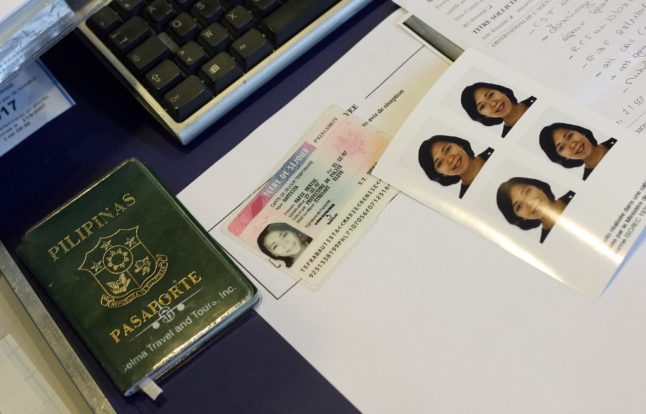Anyone who is moving to France from outside the EU needs a visa, but visas are also required for stays over a certain period.
If you want a long holiday or have a second home in France that you want to spend plenty of time in, you will need a visa if you are the citizen of a non-EU country.
Since January 1st 2021, this of course also includes British nationals.
The French government guidance says: “As of January 1st 2021, UK citizens will need a Long Stay visa if staying in France or in a French Oversea Territory for more than 90 days whatever the purpose of stay (work, studies, Au Pairing, passport talent, visitor, family reunification, family members of French nationals, etc).”
Non-Europeans are subject to the 90-day rule visiting France, which limits visits to 90 days in every 180.
Find out about how the 90-day rule works HERE.
Anyone who wants to do paid work in France – even if they are staying for less than 90 days – will also likely need a visa – find out more HERE.
But for people who just want to spend an extended period in France without working, the visitor visa is available.
Here's how it works:
The visitor visa allows you to stay for up to a year, needs to be renewed every year and requires an undertaking that you will not be doing paid work while you are here.
You will also need to provide financial information to show that you can support yourself for the duration of your stay (more on that below).
What about second home owners?
Those who own property in France are not exempt from the visa requirement and must choose between either limiting their stays to less than 90 days per 180, or applying for a visa.
The French government says of second-home owners: “If you are spending between three and six months a year in France in total, you are not considered as a resident in France and cannot apply for a carte de séjour under the withdrawal agreement. You will have to apply for a temporary visitor visa – visa de long séjour temporaire visiteur.
“If you spend more than six months a year in France, you are then considered as a French resident and must apply for a long stay visitor visa (visa de long séjour valant titre de séjour visiteur).”
How do you get a visa?
The key thing about the visa is you have to apply for it in advance from your home country.
The initial process is online, you can head to the French government's visa wizard HERE and enter your details and it will tell you whether you need a visa and what type. This portal has now been updated with the post-January 1st requirements for Britons.
You first need to set up an account on the site, then fill out the form with all the relevant details. You then submit it and print out the form and receipt and take that printout along with all the supporting documents requested to your nearest French consulate in your home country.
As well as personal information and proof of ID, you will also need to provide information on your financial status.
You can find more information on financial requirements HERE, but the guidelines figure is that you need around €1,200 for each month of your stay – this can either be evidence of a regular income such as a pension or a lump sum for the whole year – roughly €14,000 – in a bank account.
The visa lasts a year, so you will need to do this for every year you want to spend more than 90 days at a time in France if you want to remain as a visitor.
If you later decide that you want to move to France permanently, you can apply for a carte de séjour residency card, but these are only for people whose full-time home is in France.
How much are they?
Visas are not free, you will be charged a fee and this is not refunded even if your application is denied.
You can find the full list of fees here, but generally short-stay visas are €80 and long-stay are €99.
This is only part of the cost, however. Most supporting documents that you supply must be translated into French and you will need to pay for a certified translator to provide these. Find out more about certified translations and costs HERE.



 Please whitelist us to continue reading.
Please whitelist us to continue reading.
Oh no! I was just about to apply. when did they stop? is it normal that they don’t mention that on the embassy website and still seem to be inviting applications?
Do we know if having an EHIC covers the visa requirement for health cover on a visitor visa?
Do we know if having an EHIC covers the visitor visa requirement for health cover?
I’m a Canadian and have been in France on a 1 year visitor visa since 2018. I would like to travel outside of Europe to see my family when conditions improve. Will I be able to return to France? The government websites say that permanent residents can return but my ID card says ‘carte de séjour temporaire’ and ‘visiteur’